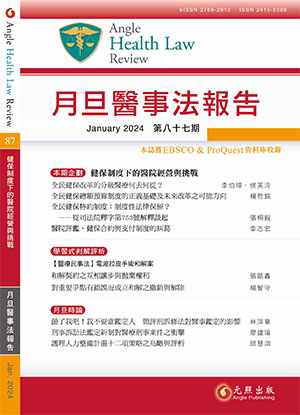推定反對?器官捐贈選擇退出制度與特定組織器官的排除(二)【全球瞭望】 試閱
Presumed Dissent? Opt-out Organ Donation and the Exclusion of Organs and Tissues (II)
人們經常聲稱,器官捐贈的合法方式應為選擇退出制度,也稱為「推定同意」、「視為同意」或「視為授權」,因此,除非個人有明確拒絕,否則死後將推定或視為願意捐贈至少一部分組織或器官。但即便大致上許多制度都預設支持捐贈,但它們在幾個關鍵面向有所不同,例如,潛在捐贈者家庭成員的偏好所扮演的角色、地位與重要性;排除特定人口群體,或額外強調的保護機制;或是仍被排除在選擇退出制度的器官或組織。本文將對英格蘭、蘇格蘭及北愛爾蘭近期事後退出權的轉變進行案例研究,並參考推動整個英國造成這樣轉變的關鍵因素,本文將會嘗試提問:倘若如此,為何且如何,死後器官捐贈制度中的事後退出權應排除某些視為同意的特定器官或組織。換句話說,死後器官捐贈制度的事後退出權,是否應當對特定器官或組織的捐獻提出質疑?
It is often claimed that a legitimate approach to organ donation is an opt-out system, also known as ‘presumed consent’, ‘deemed consent’, or ‘deemed authorisation’, whereby individuals are presumed or deemed willing to donate at least some of their organs and tissues after death unless they have explicitly refused permission. While sharing a default in favour of donation, such systems differ in several key respects, such as the role and importance assigned to the family members of prospective donors and their preferences, and exclusions and safeguards which often specify the demographic groups, purposes, or organs and tissues that will remain outside the scope of the opt out system. Using the recent shift to opt-out in England, Scotland, and Northern Ireland as case studies, and by reference to the key goals motivating this shift across the UK, this article asks whether and, if so, why, and how, opt-out systems for post-mortem organ donation should restrict the types of organs and tissues for which consent is deemed. In other words, ought opt-out systems for PMOD presume dissent regarding the donation of certain organs and tissues?
098-106






